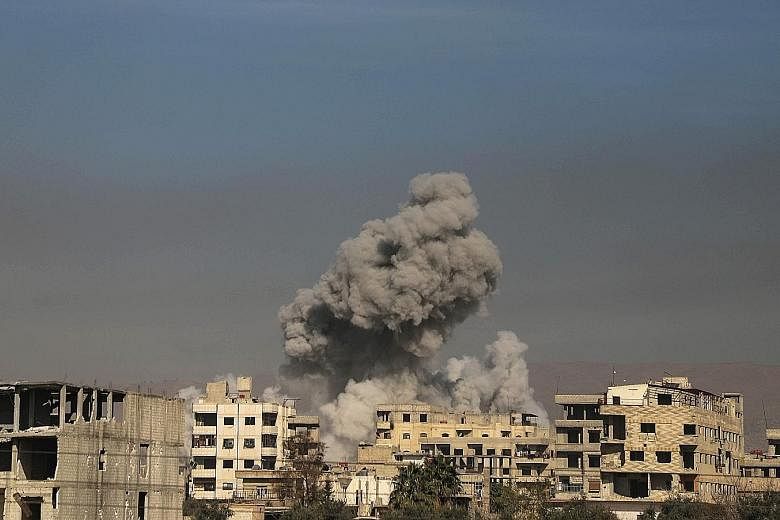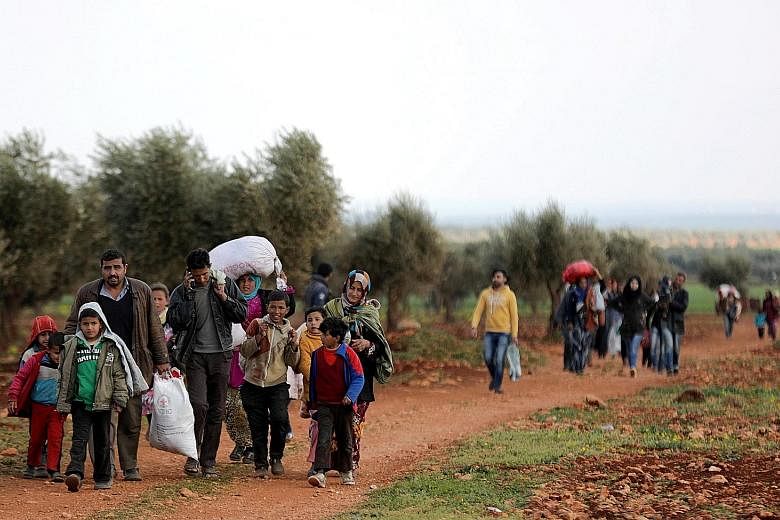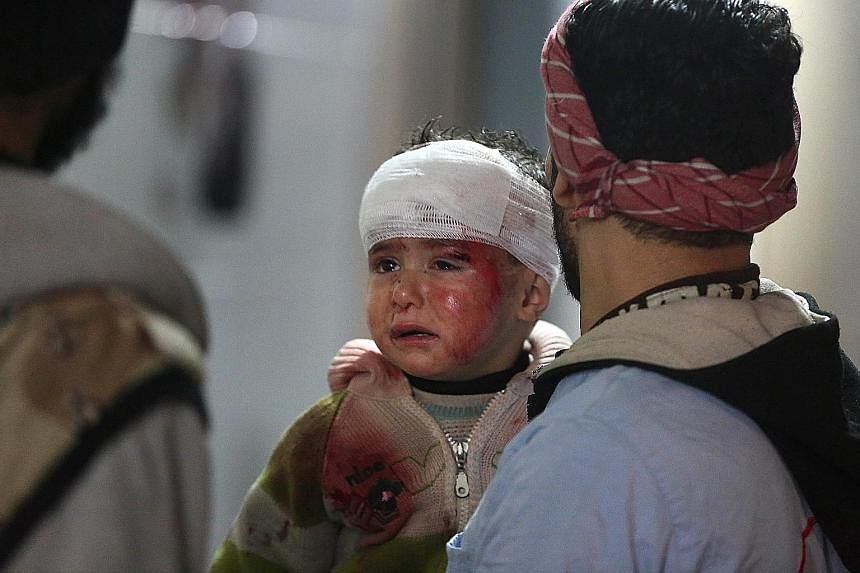BEIRUT • Syria's lacerating conflict entered its eighth year yesterday with the country riven by international power struggles, as the Syrian army captured a rebel-held key town near Damascus while Turkey encircled a besieged Kurdish enclave in the north.
The bloodshed, which has devastated huge swathes of the country since it started on March 15, 2011, when the government of President Bashar al-Assad cracked down on mostly peaceful protests, has splintered into ever more complicated conflicts.
In the latest fighting, Ankara-backed forces launched a bombardment of Afrin and closed in on the main city, in an offensive that could redraw the map in northern Syria.
The development came as regime forces, backed by Moscow, captured the town of Hammuriyeh in the beleaguered rebel enclave of Eastern Ghouta on the outskirts of the capital.
The Syrian Observatory for Human Rights said yesterday that Hammuriyeh fell to regime forces after Islamist rebels from Faylaq al-Rahman withdrew.
Footage on state TV showed men, women and children walking along a dirt road to army lines on the outskirts of Hammuriyeh. They carried blankets, bags and suitcases on their shoulders, as some of them wept. A group crammed in the back of pickup truck waved Syrian state flags.
International efforts have consistently failed to stop the war in Syria, one of the deadliest wars of the century, with an estimated 400,000 people killed since the conflict first erupted, and more than half of Syria's pre-war population of 20 million displaced.
At its weakest point in 2015, the Syrian state held less than a fifth of Syria. Russia's air force arrived to turn the tide in September of that year, working with Iranian and Iranian-backed forces spearheaded by Lebanon's Hizbollah, which has been fighting in support of Mr Assad since 2012.
After defeating insurgents in Aleppo, Mr Assad and his allies swept across Syria last year, recovering territory all the way to the Iraqi border from the Islamic State in Iraq and Syria's crumbling "caliphate".
The Assad regime now holds 58 per cent of Syria, according to the Syrian Observatory for Human Rights, including the main cities, the coast, and an expanse of desert west of the Euphrates.
The government is now trying to finish off the rebellion in western Syria. The expected defeat of Eastern Ghouta may hasten the demise of remaining rebel pockets near Damascus, Homs and Hama.
Some believe a divided Syria may stabilise for some time - perhaps years - with Mr Assad forced to accept a de facto partition and no prospect of a negotiated peace.
Others fear further escalation involving Turkey, the United States, Israel, Iran and Russia.
"I don't think victory is as near as the Syrian government perceives it to be," said Mr David Lesch, an expert on Syria, noting Mr Assad was now facing "a diplomatic quagmire".
President Assad believes he can "wait out" foreign powers, notably Turkey and the US, but it is going to be a very long time, if ever, before he can extend real control over the rest of the country, Mr Lesch said.
Separately, Turkish President Tayyip Erdogan's spokesman said yesterday that the sacking of US Secretary of State Rex Tillerson may delay a deal between Ankara and Washington to pull Kurdish fighters out of the Syrian town of Manbij, but Turkey still expects US help.
Turkey has waged a military operation for nearly two months inside Syria against the US-backed Kurdish YPG militia, which Ankara considers terrorists.
Mr Tillerson had played the leading role in US diplomatic efforts to resolve the issue.
AGENCE FRANCE-PRESSE, REUTERS



